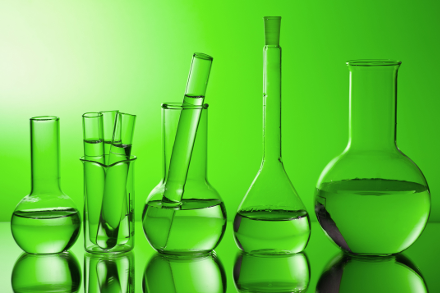On January 28, the University of Antwerp will organise a Winter School on Green Chemistry, sponsored by FWO and FNRS. At the event, guest speaker Prof. James Clark of the University of York will deliver two lectures. Please note that registration is free, but mandatory by January 24. Late registrations cannot be accepted.
14:00-15:15 Lecture 1
Principles of Green Chemistry; Drivers for change; Clean synthesis; Metrics
The Green Chemistry movement is over 20 years old but now has fresh momentum from some key current sociological, environmental and economic drivers and these will be explored including new legislation that is challenging the fundamentals of many traditional chemical processes and products. At the heart of green chemistry is the chemical process and many alternatives to traditional chemical routes, reagents and methods are now available and these will be illustrated through some of the most important and widely known chemical processes including oxidations and carbon-carbon bond forming reactions. Apart from clean synthesis, the feedstock for chemical processes and the fate of the final products need to be considered and will be looked at especially from the point of view of sustainability, an increasing use of renewable resources and product toxicity and recyclability. All of these changes must be properly assessed through green metrics and in addition to widely used life cycle assessment we will also look at the details of the chemistry and how we can use green chemistry metrics to encourage reductions in waste, improvements in efficiency and resource recycling.
15:45-17:00 Lecture 2
Green chemical technologies including greener solvents; The bio and circular economies; Greener Products
Green Chemistry is a practical concept and the application of its principles in meaningful ways needs the right tools. Here we will consider the tools available to make real and substantial changes to chemical processes. Modern chemistry must fit within the new bio- and circular economies and this means changes to many of the chemical processes and chemical products that have been used for many years. Green chemical technologies including greater use of catalysis, alternative solvents and alternative energy techniques will be considered and their use illustrated though real examples. A good example where green chemistry and the bio-economy meet is in the design and use of bio-based solvents and these will be discussed including some emerging commercial successes. Other bio-based chemical intermediates and products will be critically assessed including the so-called platform molecules and how they can be the basis of new greener and more sustainable chemical processes. Examples of so-called green products in many sectors will be given and critically assessed from the point of view of green chemistry principles and modern circular economy thinking.
Find out more about the location and registration at:
www.uantwerpen.be/en/conferences/green-chemistry/

